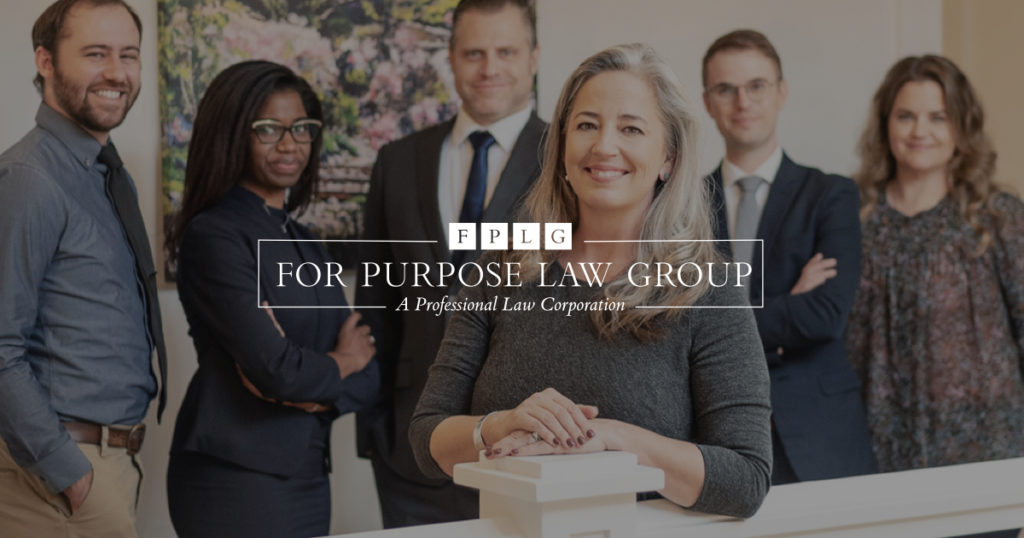
Major Overhaul of Federal Grantmaking Practices
04.24.2024 | Linda J. Rosenthal, JD

“Proctor: …How may I live without my name?
I have given you my soul. Leave me my name!”
Arthur Miller, The Crucible, Act II, Scene 3
It’s a dog-eat-dog world in the chase for charitable donations. A nonprofit that wants to survive in this competitive market needs a corporate name that is widely recognized and associated in the public’s mind with that organization alone. Sometimes, though, there’s confusion . . . and dollars – big dollars – go astray.
Similar Names: A Big Problem
Obvious choices for corporate branding include: location, charitable mission, and target beneficiaries.
But it’s not at all uncommon for two or more groups to use similar or identical language to identify themselves to the public. So there may be lots of “San Diego Blah Blah [insert name of disease or cause] Foundation” or “Californians Against Blah Blah Blah” or “National Blah Blah Organization.”
And the result can be disastrous consequences for the bottom line of one or all of these charities.
Deliberate Misappropriation
We highlighted one example in “A Rose By Any Other Name . . .” Two organizations helping injured veterans battled it out in 2007 litigation that resulted in a landmark $1.7 million verdict for WWP, Inc. dba Wounded Warrior Project against an entirely independent group, Wounded Warriors, Inc. In that lawsuit, it was proved there was not only inadvertent donor confusion but also that the smaller group had deliberately infringed the name and goodwill of the larger organization, and diverted funds on a grand scale.
Group Disputes
A scenario fertile for serious disagreements and lawsuits, including about the right to use parts or all of a corporate name, is when chapters fall out with a parent organization. That was the background for the 2010 litigation by The Alzheimer’s Foundation of America against The Alzheimer’s Association, alleging claims including diversion of assets.
While both organizations focus on Alzheimer’s Disease, there is a sharp distinction in focus – which was part of the reason that the Foundation was formed in about 2000 by certain breakaway chapters. The Alzheimer’s Association focuses on “research for a cure,” while the breakaway Foundation’s “mission is to provide care and services to people with dementia and their caregivers.” This division represents an important philosophical disagreement about how best to use contributions for optimum, near-term, benefit for disease sufferers and their families.
The Alzheimer’s Association has continuously asserted an “incontestible registered trademark” in its name, and, partly on that basis, has continued to permit its third-party donations processor to deposit any and all checks it receives with “Association” as the payee.
In cases like this, an important element of the proof at trial is evidence of confusion and donors’ true intent.
Bequests: Ambiguities, Mistakes, and More
In the name-similarity cases, it’s possible to prove which charity was the intended recipient; the donors can be called to testify.
But in other situations, the donors are well beyond the subpoena power of any earthly court.
Mistaken Identity
For instance, the Alzheimer’s 2010 litigation had its roots in a discovery, in 2007. The breakaway Foundation learned that a deceased Virginia woman had intended to leave money to it, but the executor mistakenly sent the funds to the Association, which deposited the check. Eventually, the money was retrieved and sent to the rightful recipient.
In a similar incident recently, elation turned to disappointment for a Collinsville, Oklahoma animal charity: Ward-Wiseman Animal Haven. The organization learned of a surprise bequest of over $188,000 from an unknown supporter. Anonymous or unexpected donations are rare in charitable giving, but they happen occasionally. Like most animal rescue organizations, this group was always on the brink of running out of money, so it happily accepted the money.
Eight weeks later, the lawyers called: They had discovered their mistake; the money was meant for (and expected by) a shelter in Collinsville, Illinois. The Illinois charity had been expecting the gift, and inquired about it.
In a kind act of charity, the lawyer donated his $12K legal fee to Oklahoma’s Ward-Wiseman Animal Haven to make up for his office’s mistake.
No Such Organization
All too often, a decedent may have had in mind a specific charity or cause, but didn’t identify it by its correct, official name. A bequest to “The Cancer Society,” for example, may have been intended for the American Cancer Society,” but other cancer groups could try to claim the money.
That was the situation in 2004 when a Virginia man died without close relatives, leaving his $600,000 estate to the “Bedford County ASPCA Animal Shelter.” Unfortunately, there is no such charity. Of course, that didn’t preclude a court fight; it facilitated one. The bequest was claimed by the Bedford Humane Society, the county-managed Bedford Animal shelter, the New York-based American SPCA, and a group of 13 distant relatives.The winner: the Bedford County Humane Society.
Another example surfaced recently in Lynchburg, Virginia – again involving an animal charity. A local woman had died decades ago. She left her estate to designated people, for their lifetimes, with the remainder to go to the Lynchburg branch of the “Society for the Prevention of Cruelty to Animals” when the last legatee died.
But there is no such charity at the current time. The bank trustee has asked the court to approve a modification so that the $700,000 could go to one or more charities with purposes similar to the manifested intent of the decedent; that is, animal protection groups. Needless to say, local animal nonprofits are scrambling for this sizeable pot of money. The attorney for the Lynchburg Humane Society claims that his client is not only suitable but probably is the charity that the lady had in mind when she signed her will so many years ago.
It’s crucial for charities to make sure that the estate plan documents of their known supporters include the correct corporate name and other identifying information to ensure against any confusion.
Another scenario is also the cause for uncertainty in gifts and bequests. For a variety of reasons, charities decide to change names after many years of operation. The American Humane Association was in operation for 127 years when it changed its name to American Humane. It’s still often referenced, especially in print, by the old name, and is also mistaken with the American SPCA, and the Humane Society of the U.S., which had been formed by former American Humane Association staff in 1954.
Sometimes, though, it seems to work out fine. A British charity – yet another animal group – was known as the National Canine Defence League from 1891 through October 2003. The new organization, Dogs Trust, reportedly has had no issues with donor drop-off or confusion.
Conclusion
It’s important for charities to pay attention to the matter of protecting the corporate name, as well as avoiding infringement claims from others. So, too, it’s key to ensure that their planned-giving participants have, and include in their estate planning documents, full and complete corporate name and other identifying information.
